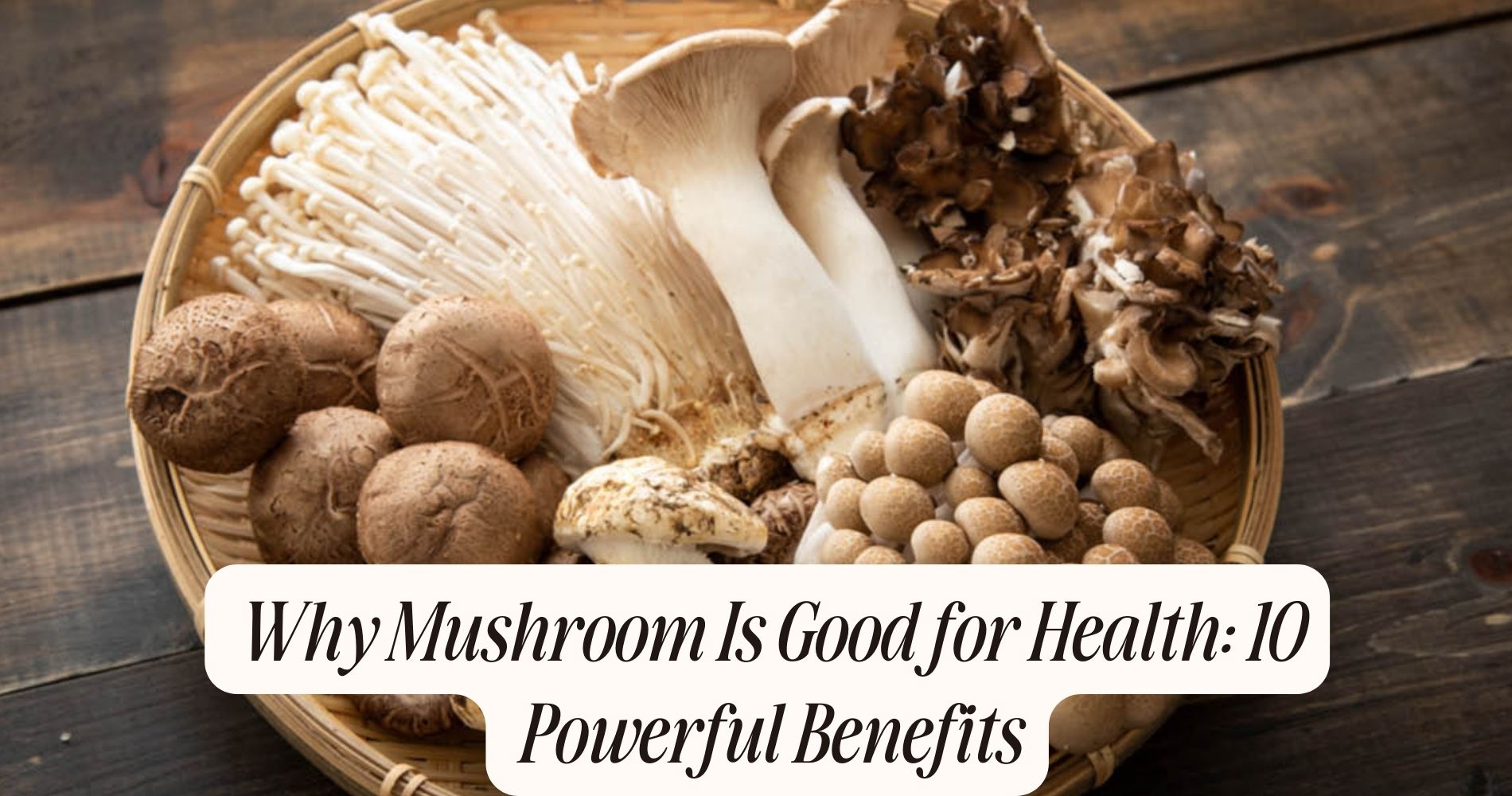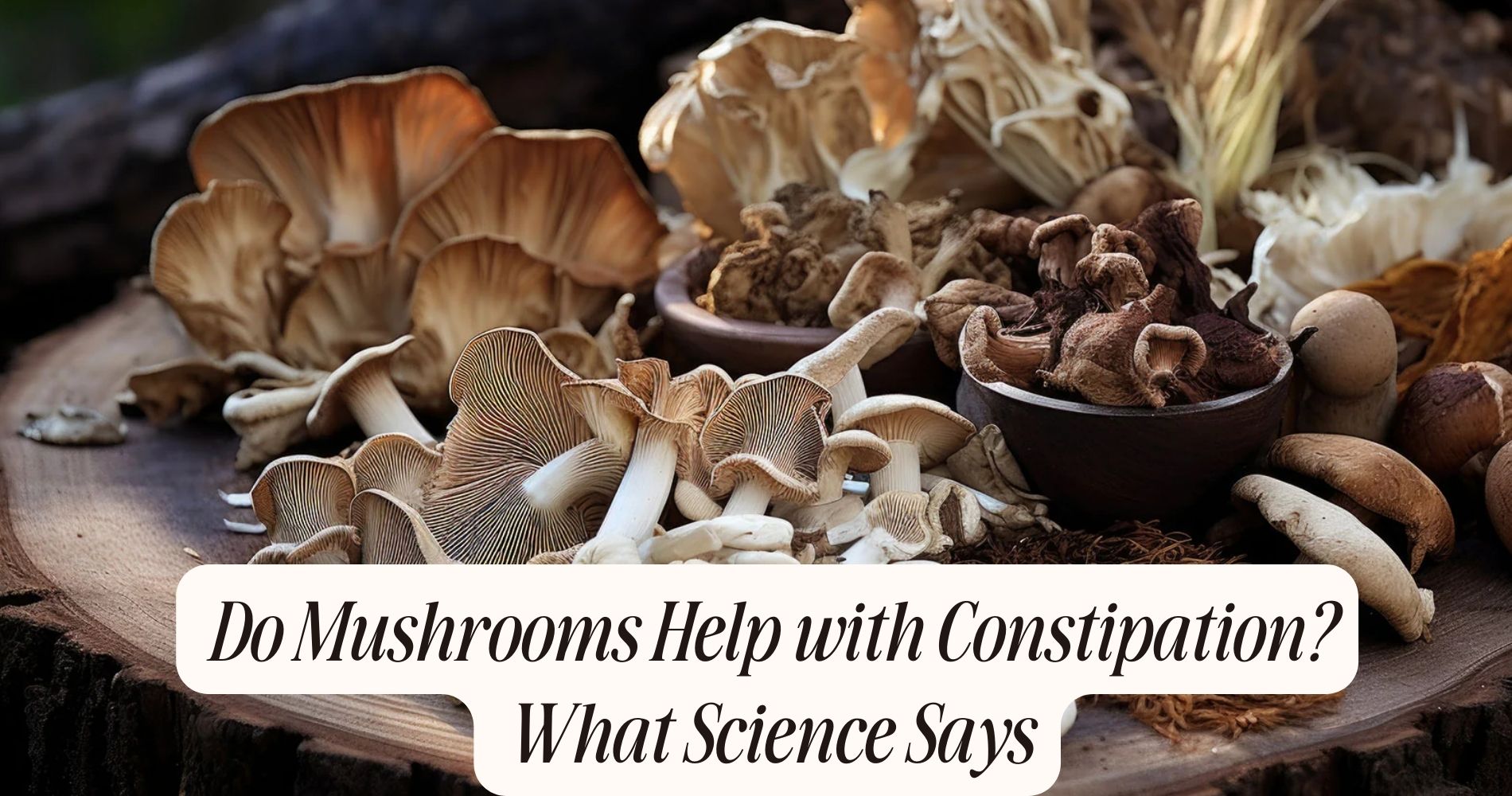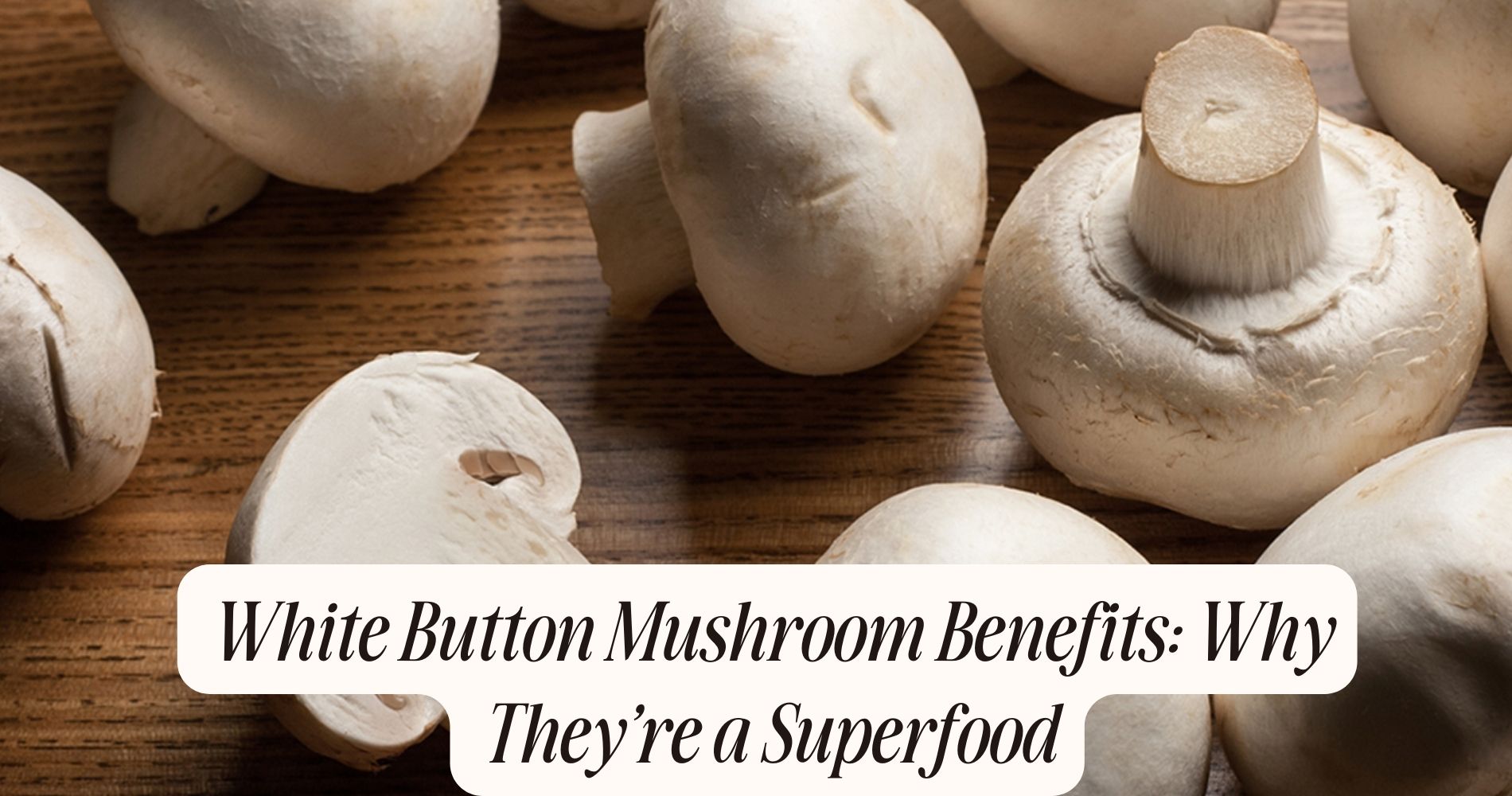
Why Mushroom Is Good for Health: 10 Powerful Benefits
Why mushroom is good for health? Mushrooms offer numerous health advantages for you, including immune support through beta-glucans, heart health benefits from reduced cholesterol and balanced blood pressure, and antioxidant properties that combat aging and chronic disease. They aid in weight management with their low-caloric density and fiber content, while promoting hydration for vibrant skin. Enjoy mushrooms in diverse culinary uses to enhance your nutrient intake. Discover even more surprising health benefits with continued exploration.
Boosts Immune System Function
When it comes to enhancing your immune system, mushrooms are an impressive ally. Rich in fungal nutrients, they offer a powerful boost to your immune response.
Research indicates that mushrooms like shiitake and maitake can increase the production of white blood cells, essential for fighting infections. The beta-glucans found in these fungi act as immunomodulators, helping your body react more effectively to pathogens.

To incorporate them into your diet, consider adding fresh or dried mushrooms to soups, stir-fries, or salads. Cooking them enhances their nutrient availability, making it easier for your body to absorb the benefits.
Supports Heart Health
While boosting your immune system, mushrooms also offer significant benefits for heart health. They contain compounds that aid in cholesterol reduction. For instance, beta-glucans and chitosan found in mushrooms can lower total cholesterol levels, reducing the risk of heart disease. By incorporating mushrooms into your diet, you can enjoy a natural way to manage cholesterol levels effectively.
Additionally, mushrooms can help regulate blood pressure. Rich in potassium, they counteract sodium in the body, promoting better blood pressure control. This balance is essential, as high blood pressure is a major risk factor for cardiovascular problems.
To maximize these benefits, consider adding a variety of mushrooms such as shiitake, maitake, or oyster to your meals. Regular consumption can be a heart-smart choice.
Provides Antioxidant Properties
Mushrooms pack a powerful punch with their antioxidant properties, making them an excellent addition to your diet for combating oxidative stress. These fungi are rich in antioxidant compounds like ergothioneine and glutathione, which play a crucial role in cellular protection.
By neutralizing free radicals, these compounds help reduce the risk of chronic diseases and slow down the aging process. Including mushrooms in your meals can provide a natural boost to your body's defense mechanisms.

To maximize benefits, incorporate a variety of mushrooms such as shiitake, maitake, and reishi into your diet. These types are especially high in antioxidants.
Try adding them to salads, soups, or stir-fries. Regular consumption can help fortify your body against oxidative damage, supporting overall health and well-being.
Aids in Weight Management
If you're looking to manage your weight, incorporating mushrooms into your diet can be a practical strategy.
Mushrooms have a low caloric density, meaning you can enjoy a generous portion without consuming many calories. This makes them ideal for portion control, allowing you to feel satisfied while keeping your calorie intake in check.
Research shows that foods with low caloric density, like mushrooms, help reduce overall calorie consumption, which is vital for weight management. Additionally, their high water and fiber content can promote satiety, helping you resist overeating.
By substituting higher-calorie ingredients with mushrooms in your meals, you can enjoy flavorful dishes without compromising your weight goals.
Start integrating mushrooms into your meals for a tasty and effective weight management approach.
Enhances Brain Health
As you focus on weight management, it's also worth noting that mushrooms can play a significant role in boosting brain health. Their cognitive enhancement abilities stem from compounds like ergothioneine and hericenones, which are known for their neuroprotective properties.
These compounds help reduce oxidative stress and inflammation in the brain, potentially lowering the risk of neurodegenerative diseases like Alzheimer's. By incorporating mushrooms into your diet, you can support your brain's resilience against age-related decline.

Regular consumption of mushrooms could also improve memory and focus due to their ability to enhance neural growth. To maximize these benefits, consider adding a variety of mushrooms, such as lion's mane or shiitake, to your meals.
This simple dietary change might just be the brain boost you need.
Promotes Healthy Digestion
While you're enjoying the savory flavors of mushrooms, you mightn't immediately realize their potential to promote healthy digestion.
Mushrooms are rich in dietary fibers like beta-glucans that act as prebiotics, nourishing beneficial gut bacteria and enhancing probiotic benefits. This supports a balanced gut microbiome, essential for efficient nutrient absorption and ideal digestion.
Additionally, mushrooms contain digestive enzymes, such as amylase and cellulase, which help break down complex carbohydrates and fibers, easing the digestive process.
Including mushrooms in your diet can reduce bloating and improve regularity, offering a natural way to keep your digestive system functioning smoothly.
Consider incorporating a variety of mushrooms into your meals to maximize these benefits, supporting your overall digestive health with each bite.
Regulates Blood Sugar Levels
Beyond aiding digestion, mushrooms offer remarkable benefits in regulating blood sugar levels. They contain compounds like beta-glucans that enhance insulin sensitivity, helping your body use insulin more efficiently. This can lead to more stable blood sugar levels, reducing the risk of spikes and crashes. Incorporating mushrooms into your diet could be particularly beneficial if you're managing diabetes or prediabetes.
Research shows that the antioxidants found in mushrooms help reduce oxidative stress, which can negatively impact insulin function.
To make the most of these benefits, include a variety of mushrooms like shiitake and maitake in your meals. Opt for fresh or minimally processed options to maximize their nutritional value. Consistent consumption can support your overall metabolic health, making it a practical choice for blood sugar management.
Strengthens Bone Health
Although often overlooked, mushrooms play an important role in strengthening bone health due to their rich content of essential nutrients like vitamin D, calcium, and phosphorus.
Vitamin D is essential because it enhances calcium absorption, ensuring that your bones get the nutrients they need to remain strong. When you consume mushrooms, especially those exposed to sunlight or UV light, you're boosting your vitamin D intake naturally.
This boost supports calcium absorption, which is necessary for bone density and preventing conditions like osteoporosis. In practical terms, incorporating mushrooms into your diet can be as simple as adding them to salads, soups, or stir-fries.
Offers Anti-Inflammatory Benefits
In addition to fortifying your bones, mushrooms also offer remarkable anti-inflammatory benefits that can't be ignored. These fungi contain anti-inflammatory compounds like polysaccharides, which actively reduce inflammation in your body.
By incorporating mushrooms into your diet, you can help lower the risk of chronic inflammation-related diseases, such as heart disease and diabetes. Research highlights that certain mushrooms, like reishi and shiitake, are especially potent in combating inflammation.

To harness these benefits, include a variety of mushrooms in your meals. You might sauté them with garlic or add them to soups and salads.
This practical approach not only enhances flavor but also supports chronic disease prevention. So, make mushrooms a staple in your diet for a proactive approach to inflammation management.
Contributes to Skin Health
Because skin health is often a reflection of your overall well-being, adding mushrooms to your diet can provide significant benefits.
Mushrooms are rich in antioxidants, which help combat oxidative stress, a major factor in skin aging. These fungi are also a good source of selenium, a mineral that boosts collagen production, essential for maintaining skin elasticity and reducing wrinkles.
Furthermore, mushrooms contain polysaccharides that support skin hydration by retaining moisture, keeping your skin supple and vibrant. Incorporating mushrooms into your meals can improve your skin's appearance by fostering a more balanced and nutrient-rich diet.
Try adding them to salads, soups, or stir-fries to enjoy their skin-enhancing properties. Remember, a healthy diet is a key step towards radiant skin.
Elevate Your Health with SUPER MUSHROOM GUMMIES
Looking for an easy way to enjoy the benefits of mushrooms daily? Well Gummies’ SUPER MUSHROOM GUMMIES deliver a powerful blend of 10 functional mushrooms, including Lion’s Mane, Reishi, and Cordyceps, to fuel your brain and energize your body naturally. These delicious wild berry-flavored gummies provide calmer energy, sharper focus, and immune support—all without the jitters or crash. Convenient and tasty, they make incorporating mushrooms into your routine effortless. Try them today and experience the wellness boost!
Frequently Asked Questions
Can Mushrooms Be Eaten Raw or Should They Be Cooked?
You can eat some mushrooms raw, but cooking methods improve safety and enhance flavor. Raw consumption might expose you to toxins, while cooking breaks them down, making mushrooms more digestible and nutritious. Consider sautéing or grilling them.
Are All Types of Mushrooms Safe to Eat?
Not all mushrooms are safe to eat. You should know about mushroom toxicity and stick to edible varieties. Always buy from reputable sources or consult a guidebook if foraging to avoid any potentially harmful types.
How Should Mushrooms Be Stored to Maintain Freshness?
To keep mushrooms fresh, use refrigeration techniques. Store them in a paper bag to regulate moisture control, preventing sogginess. Avoid plastic bags, as they trap moisture, accelerating spoilage. This method prolongs their shelf life effectively.
Do Mushrooms Contain Any Allergens?
You might wonder if mushrooms contain allergens. While rare, mushroom allergies do exist. Identifying potential allergens involves consulting an allergist. If you're concerned, avoid consumption until you get a detailed analysis and practical advice from a professional.
What Is the Best Way to Prepare Mushrooms for Maximum Health Benefits?
To maximize mushrooms' nutritional value, use sautéing techniques. Quickly sauté them in a bit of olive oil over medium heat to preserve vitamins and minerals. This method enhances flavor while maintaining the essential nutrients for ideal health benefits.
Conclusion
Incorporating mushrooms into your diet can greatly enhance your overall health. They boost your immune system, support heart health, and provide antioxidants that protect your cells. Mushrooms also aid in weight management, enhance brain function, and help regulate blood sugar levels. Additionally, they strengthen bones, offer anti-inflammatory benefits, and contribute to healthier skin. By adding mushrooms to your meals, you're taking a practical step towards improving multiple aspects of your well-being, supported by scientific evidence and detailed analysis.




